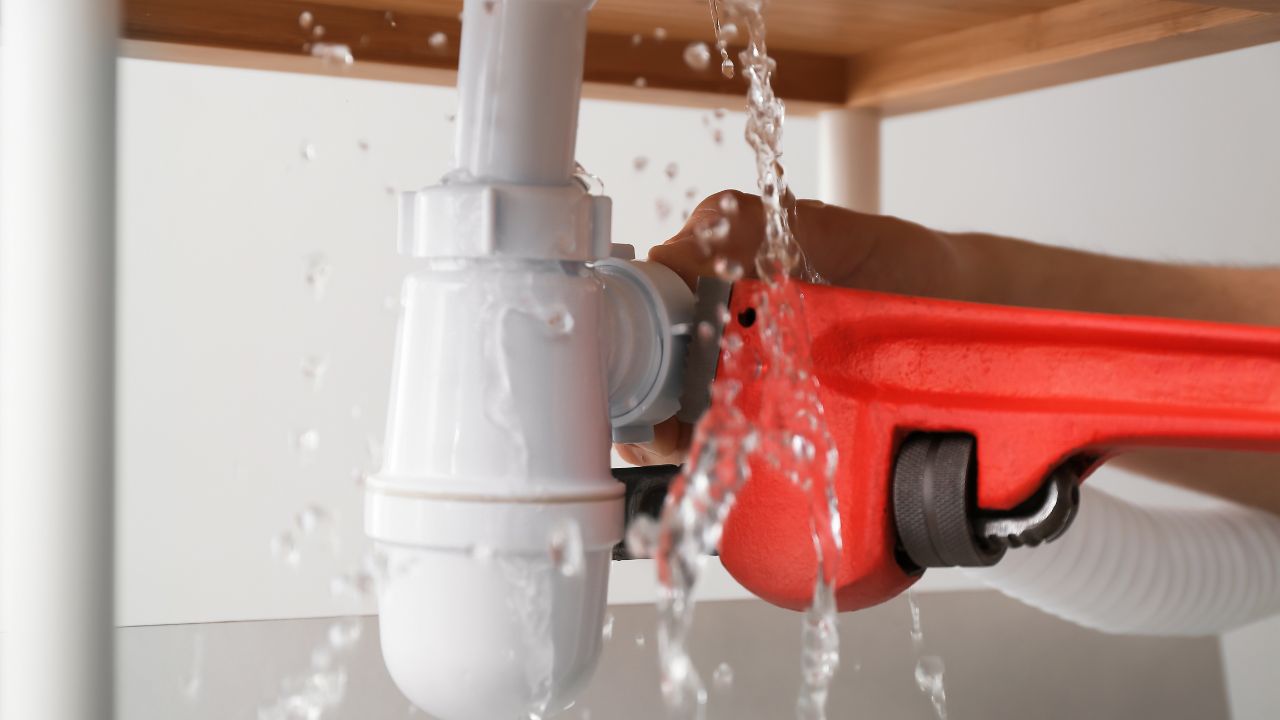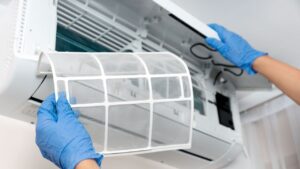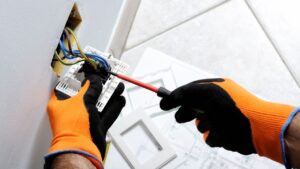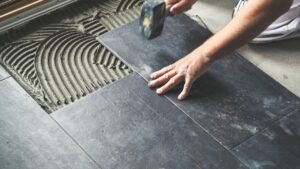Not every plumbing issue requires an immediate call to a professional. By learning to handle minor problems yourself, you can save both time and money. However, it’s equally important to recognize the signs of a serious problem where a DIY attempt could make things much worse.
1. Simple DIY Fixes for Common Plumbing Problems
For these common issues, a trip to the hardware store and a little effort can often resolve the problem without needing to pay a call-out fee.
- Clearing Minor Clogs: For slow-draining sinks or floor traps, often clogged by hair and soap scum, a simple home remedy is often effective. Pour a cup of baking soda down the drain, followed by a cup of vinegar. Let it fizz for about 30 minutes, then flush thoroughly with a kettle of hot water. A simple plunger can also work wonders. It’s best to avoid harsh chemical drain cleaners, as they can be corrosive and damage your pipes over time.
- Stopping A Leaky Faucet: That incessant drip is usually caused by a worn-out rubber washer or an O-ring inside the tap. First, turn off the water supply using the angle valve under the sink. Then, using an adjustable wrench, you can typically dismantle the faucet handle and body to access and replace the faulty washer, a part that costs mere cents.
- Fixing a Running Toilet: If your toilet continues to run long after you’ve flushed, it’s wasting a significant amount of water. This is almost always due to a problem inside the cistern (tank). Lift the lid and check the flapper, the rubber seal at the bottom. If it’s worn or not sitting properly, it won’t create a tight seal. Replacing a flapper is a simple, tool-free job. Alternatively, the water level might be too high, which can be adjusted by gently bending the float arm downwards.
- Improving Low Water Pressure (at a single outlet): If low water pressure is only affecting one tap or your shower, the culprit is likely a clogged aerator or showerhead. Mineral deposits from the water build up over time. Simply unscrew the aerator from the tip of the faucet or the showerhead from its arm, soak it in a bowl of white vinegar for an hour, and use an old toothbrush to scrub away the debris. This can restore flow instantly.
2. When To Call The Plumber
Attempting to fix the following issues without professional expertise is risky and can lead to extensive damage and much higher repair costs. If you encounter any of these, turn off the main water supply if possible and call a licensed plumber immediately.
- Sewer System Backup: If you notice foul odours coming from your drains, hear gurgling sounds from multiple fixtures (e.g., your toilet gurgles when the washing machine drains), or have multiple drains backing up simultaneously, this indicates a blockage in your main sewer line. This is a serious issue that requires professional equipment to clear and should be addressed immediately.
- Suspected Burst or Major Leaks: Telltale signs of a hidden leak include unexplained water stains appearing on walls or ceilings, damp or warped flooring, a musty smell you can’t trace, or a sudden and significant drop in water pressure throughout your entire home. These point to a leak within your walls or under your floors, which requires professional leak detection and repair.
- Water Heater Malfunctions: Aside from checking the thermostat or resetting a tripped circuit breaker, all other water heater issues should be left to a professional. Strange noises (rumbling or popping), visible leaks from the tank, or a complete failure to produce hot water can signal a serious problem. Given the combination of high pressure, water, and electricity (or gas), attempting a DIY repair is extremely hazardous.
- Any Problem You Can’t Identify or Fix Quickly: The golden rule of home repair is to know your limits. If you’ve attempted a simple fix and it hasn’t worked, or if you are unsure of the cause of the problem, it’s time to call a professional. A failed DIY attempt can easily turn a small problem into a major one, multiplying the eventual repair cost.
Before engaging a plumber, remember to read our guide to plumbing costs in Singapore.









